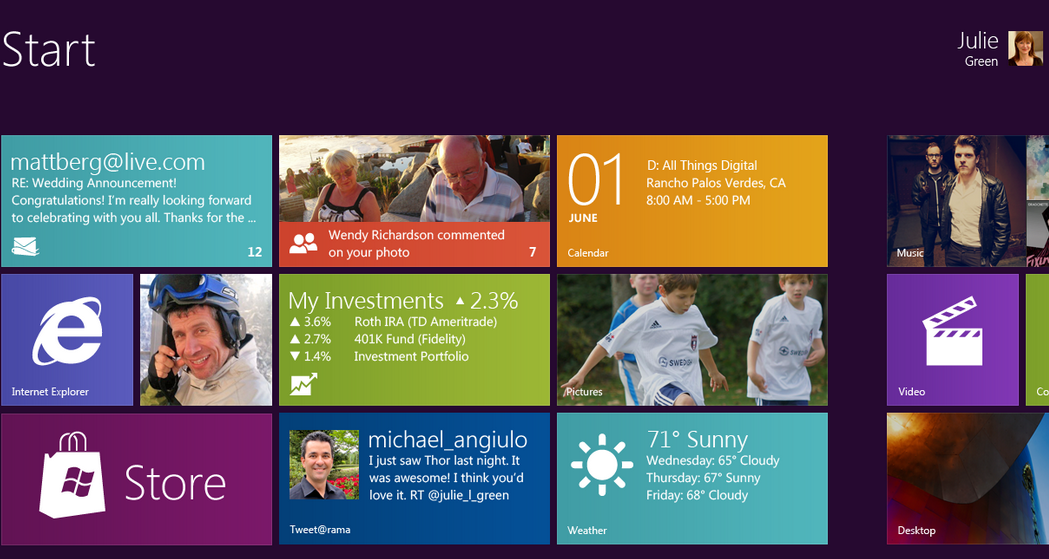Windows 8 user experience will come down to apps


The Windows 8 interface for touch tablets is very cool, with careful thought in the design to make things easy to manipulate and access. That manipulation seems to depend heavily on a touch interface as found on tablets, and I am not sure how well that will translate to keyboard and mouse control. The problem is that tablets are totally different animals in how they are used, and one interface may not really work for all three device types.
Interface concerns aside, the real test for Windows 8 will come from apps. Microsoft showed standard Excel running under Windows 8, and frankly that just won't work. I've used Windows 7 touch tablets quite a bit, and trying to work with apps designed for manipulation with the keyboard and mouse just don't work with touch. Apple recognized this and produced iPad specific versions of its iWork suite that were optimized for touch, and Microsoft must do the same with its own apps at least.
Even if Microsoft puts lots of effort into making touch-specific versions of Office for tablets, the rest of the app world is going to have to do the same. Developers are not going to build apps that handle tablets, laptops and desktops equally well, it is too much work. We're going to end up with what we have today with Windows 7 touch tablets: thousands of apps that simply don't work with a keyboard and mouse. This can't be allowed to happen for Windows 8 to succeed in the mobile market.
I'm afraid that building one version of Windows 8 for all devices just won't fly, even if Microsoft puts a lot of sophisticated checking to determine what type of device Windows 8 is installed on. Such checking could change the interface based on the device type detected, but that's still not good enough. It's going to come down to those apps, and tablet apps are totally different beasts than desktop apps.
See related coverage: